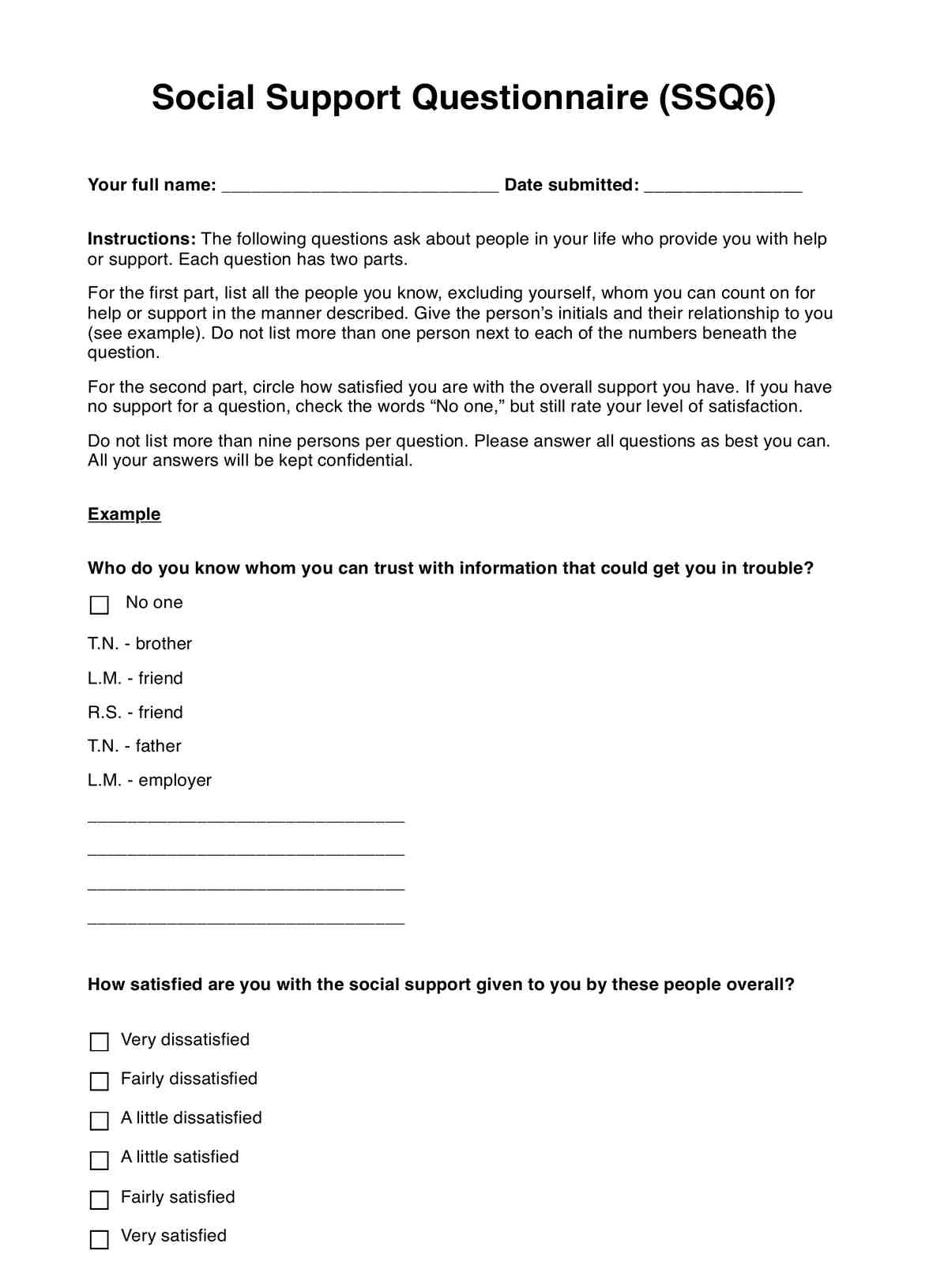It can take at least 5 to 10 minutes, assuming the person answering it doesn’t have to think too much about their answers.

Social Support Questionnaire (SSQ6)
Check if your patients are getting the necessary social support that they need by using this Social Support Questionnaire (SSQ6).
Social Support Questionnaire (SSQ6) Template
Commonly asked questions
Irwin G. Sarason and his team. This is a short-form version of the original Social Support Questionnaire they made in 1983.
You need to indicate whether you’re getting social support about the item being answered. If you have social support, name up to a maximum of nine people but only use the first initials of their first and last names, then indicate your relationship with them. After that, just rate them using one of the six preset answers per question.
EHR and practice management software
Get started for free
*No credit card required
Free
$0/usd
Unlimited clients
Telehealth
1GB of storage
Client portal text
Automated billing and online payments











